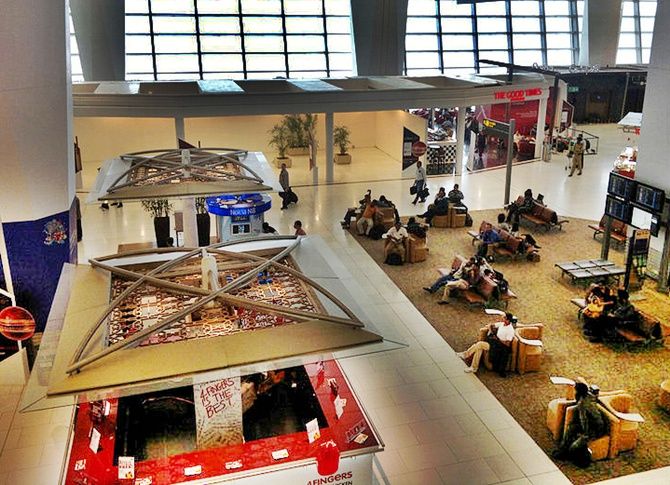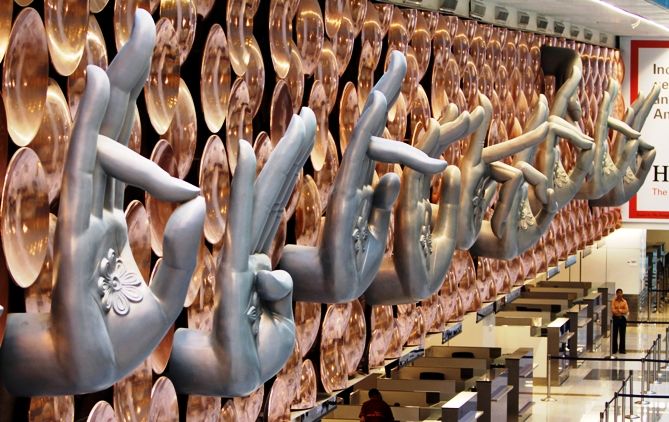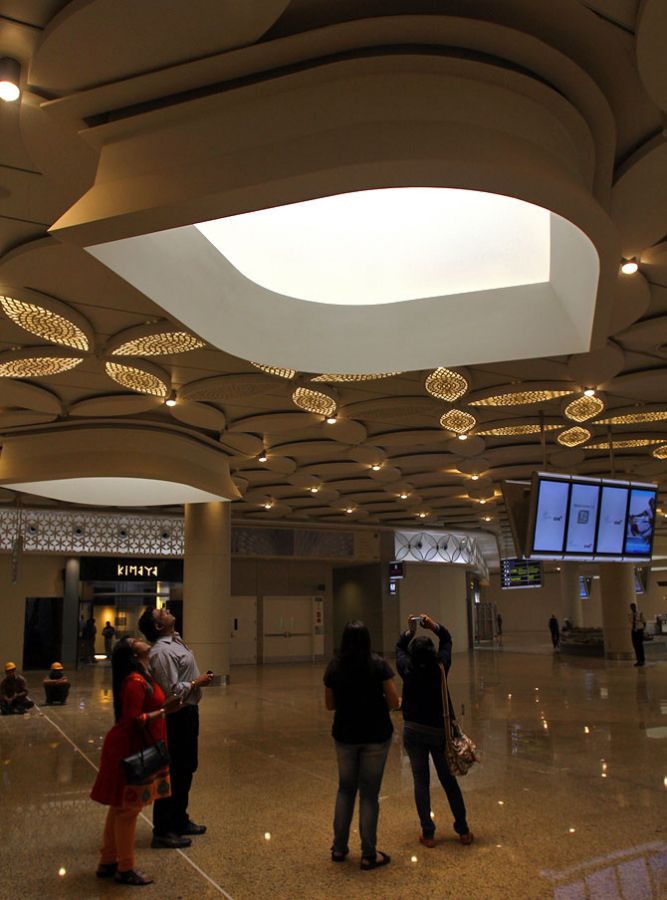Private airports are much better but because of poor regulation, the tariffs have shot up, notes Anjuli Bhargava.

Anyone who flew regularly in and out of Delhi's Indira Gandhi airport before the Commonwealth Games would testify to this.
People had begun to dread flying simply because they had to navigate the nightmare that the old airport had become. The Airports Authority of India-run Delhi airport was badly managed, poorly maintained and bursting at the seams.
Everyone - not just Delhiites -breathed a sigh of relief when the two largest airports of the country - Delhi and Mumbai - were privatised. Some semblance came into flying and the airport was no longer something to be ashamed of or dreaded.
So if anyone argues that privatisation of these two airports has not been good for the country, I won't agree. But yes, the privatisation has not been ideally managed and that is one argument I will buy.
Why? I will narrate two incidents soon after the new Terminal 3 opened at Delhi airport.
The magazine I was working with decided to do a photo feature on the terminal.

The then aviation minister, Praful Patel, and I landed up at the airport prior to its formal opening and I took some pictures of both the facilities and the minister.
Patel posed - a bit like a proud peacock - at various spots in the terminal. When I expressed some doubt on whether we needed something quite so large, grand and, to my mind, a bit over the top, he shook his head a bit disgustedly, thinking I imagined: "Oh these journalists, they are never happy. If you do something, they crib. If you don't, they still crib".
But he sort of missed the point. I was not trying to run down what had been achieved; just wondering whether we needed to be this grand and large.
Would this actually be used in the near future and if not, did it make economic sense to build it today? We could still do grand but in stages.
Around the same time, I recall meeting G V Sanjay Reddy of GVK at his Mumbai office.

He had already improved the domestic terminal and was excited about his plans for a "dream" international terminal - something he subsequently delivered.
Again, as he passionately described his plans of what he would make at Mumbai, I recall thinking that such dreams can be expensive.
Large is one thing, grand another. I know we Indians have a predilection for grandeur.
Functionality - the kind Narita in Japan or Munich in Germany demonstrate - is somewhat lost on us. We like things a bit over the top. Something that makes our chests puff out in pride.
But while that might work for a five star hotel or some spa resort, airports are more functional spaces.
Costs are paid for by the travelling public. And increasingly with the middle class and lower middle classes discovering flying, it's not only the rich who pay.

So where did things go wrong? One, in the contracts signed with the private players.
The government - maybe in its rush - designed contracts that did not keep adequate check on how much was being spent by the private players and whether what was being built was justifiable and actually required just then.
Both the airports could have been built in stages as and when the need for more capacity arose.
Two, the government has completely and utterly failed with its regulation.
The Airports Economic Regulatory Authority (Aera), the body that is meant to regulate airports, has neither the technical expertise nor the experience or bandwidth required.
Officials of the Aera do not inspire confidence. Making a couple of trips overseas to see how others do it is hardly the approach to follow. They need to bring in people who understand the business and can apply it to the Indian context.

And three, the private sector needs to keep its ambitions and aspirations in some sort of check. Yes, we want to showcase to the world that we can also do it, but at what cost? Grandeur is good but so is breaking even.
Private airports are much better but because of poor regulation, the tariffs have shot up.
As per International Air Transport Association calculations, we have seen a 346 per cent increase in airport charges in Delhi, 164 per cent in Mumbai, 219 per cent in Kolkata, and a 269 per cent hike in Chennai.
We have a regulator that appears to have little idea about how to keep the private players in check.
The upshot is that the cost of operating in India is going up, which, in a way, will defeat the purpose.
Airports have to be reasonable for airlines to survive. Privatisation - be it airports or any other area - without effective regulation can entail a very high cost.











